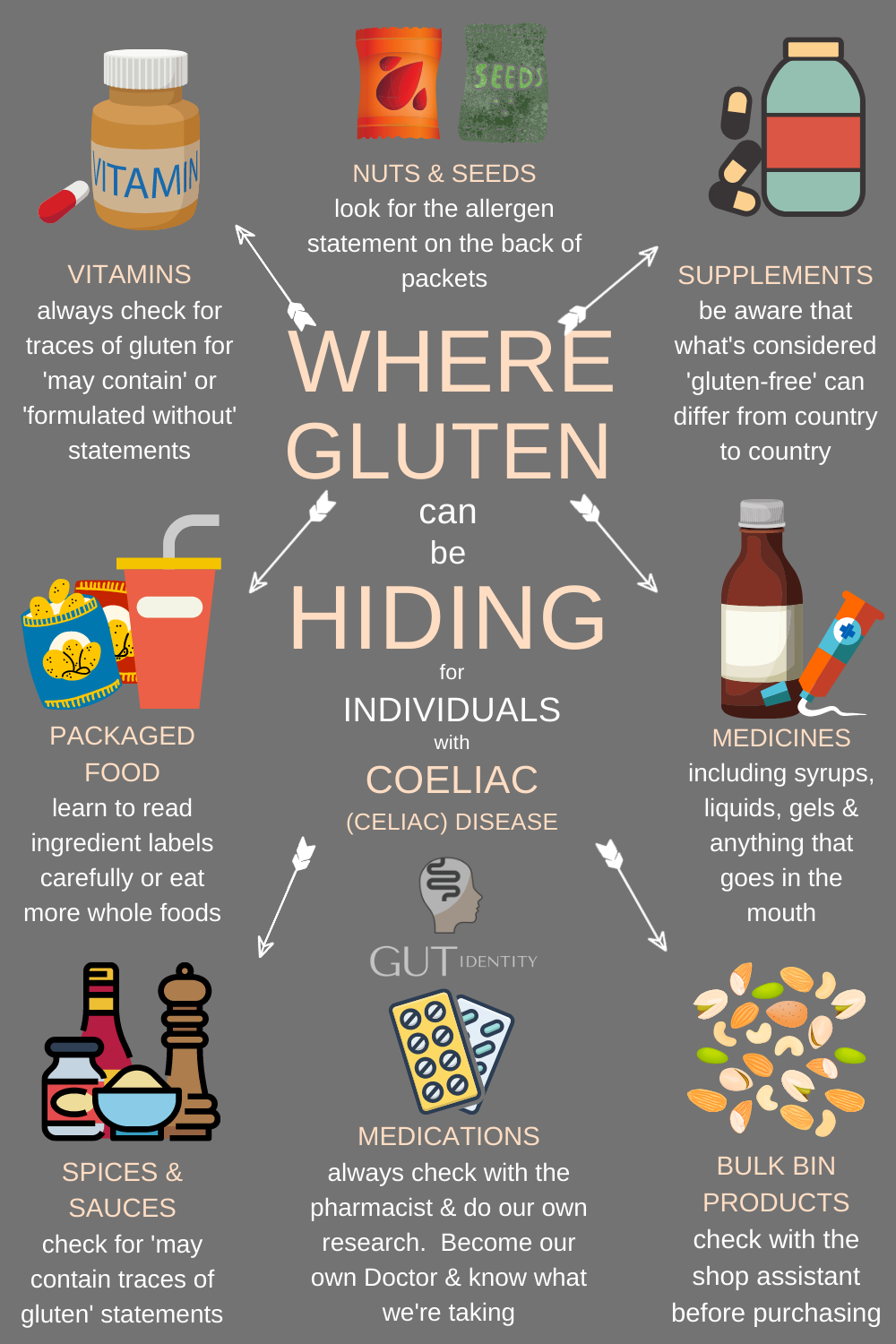Can too much gluten lead to autoimmune disease? Are we listening to our bodies when they give us warning signs that they are out of balance? In our fast-paced society of quick fixes and fast food, how much attention do we actually pay to the one thing we need the most – our health!
Our bodies have amazing ways of healing and rejuvenating themselves. That wonderful thing called the ‘immune system’ protects us against disease. But how much do we protect ‘IT’ in return?
Could something like too much gluten create a situation that can’t be reversed? A situation like an autoimmune disease? A situation like Coeliac Disease…?
JOIN THE DOTS…

Us humans just aren’t that great at joining the dots sometimes. We are when we’re a 5 year old doing a dot to dot activity, but not so much as adults.
It’s tough sometimes to make connections between what we eat and its reaction in our gut. If the reaction is small or barely noticeable, it can easily be dismissed as not being a significant issue. Because of this, we often don’t think about what would happen if we push things a bit too far.
But what happens when our body reaches a level of toxicity and turns on us? The thing is, toxicity can build up through a host of different environmental factors and turn our bodies against us.
Could it be possible that when the body can no longer fight against external environmental factors, it reaches a point that can cause serious damage?
Well, I guess the answer is, yes! It’s seen in diseases like cancer due to smoking, liver disease due to excessive drinking, heart disease due to obesity. You get where I’m going with this.
The tipping point

The term ‘tipping point’ is usually applied in topics like climate change. It’s where change happens to such a point, there’s no going back.
If we think about it in biological terms, a tipping point could relate to an ecosystem. Our gut microbiome is often referred to as an ecosystem of sorts. It’s made up of a diverse range of microbes that do different jobs.
The latest research is now indicating that certain microbes form teams or communities. How these groups work together, to either promote or decrease the chances of disease, is still being investigated. This process is called Themetagenomics.
These diverse little creatures, all play a role within the gut and the body. How these microbes function in groups is currently being researched at Drexel University in Philadelphia.
the weakest link

So what happens when certain microbes form groups that promote disease? Science is just discovering how these little teams work together. It could be possible that when they form groups in the gut and then reach a certain level, the weakest link is found. Fascinating stuff!
So how would this then relate to Coeliac Disease? If we think back to how tipping points work, it could explain when our gut has finally had enough! When a ‘team’ turns into a ‘gang’ and takes over! Like a turf war on an extremely small scale.
It could be possible that increased levels of certain microbes are caused by an environmental factor like the gluten in the foods we eat.
Products that we consume daily, can be highly processed and refined. Can increased levels of gluten in our systems contribute to where gluten intolerance leads to autoimmune disease?

More research around gluten tolerance and its effect on the levels of microbes in the gut could shed some light on why that part of the body is selected. It may also help explain why the gut then gives way and manifests in autoimmune disease.
In my case, there were signs that I was developing an intolerance to gluten. The only problem was, I didn’t know the signs or understand anything about gut health. Unfortunately, the Doctors, Specialists, and Dermatologists I saw over the years didn’t either.
know the signs
When I was a child I had eczema, but it wasn’t until my early 20s, I developed dermatitis herpetiformis which is linked to Coeliac Disease.
This is a rare form of dermatitis that’s incredibly itchy. The rash starts as small clusters of blisters that eventually pop and cause irritation as the skin dries and heals.
I started getting it on my fingers and used to go through Bandaids like they were going out of fashion. At one point, I even got it on my toes. All of my medical records state this was just atopic dermatitis possibly because I only got it on my hands and feet.
“In hindsight, my body was trying to tell me something but I wasn’t listening.
there were other signs too
Before developing Coeliac Disease, I also had endometriosis, asthma, environmental hay fever, a thyroid nodule, mild food allergies, and ADHD. You’re probably thinking, ‘what a catch’!
“Despite ALL of these signs, I still wasn’t listening, continuing to eat processed food laden with gluten and sugar. Go figure!
When problems in the body start to develop, it’s a sure-fire sign that the body’s off-balance. Well, I sure know that now!
The problem is though, that smaller, less irritating issues, are often overlooked by us humans until we can’t ignore them any longer. I reached that point when I suddenly developed Coeliac Disease. I could no longer ignore the messages my body was sending me.
too much Gluten and Autoimmune Disease
While the exact cause of Coeliac Disease isn’t yet known, there’s a strong link to environmental factors. It kinda seems plausible that a tolerance level of gluten is reached in the body that then leads to autoimmune disease. It’s also interesting that a lot of the older generation are now developing it too.
Coeliac Disease kicks off when the body launches an immune response in the small intestine. Because of this, Coeliac Disease is classified as an autoimmune disease where the immune system sees the protein gluten as an invader. This causes the body to attack itself. Once this process has started, a person can no longer consume any product containing gluten – for life.
The role of Epigenetics

Coeliac Disease doesn’t just happen by accident. First of all, you must have variants of the HLA-DQA1 and HLA-DQB1 genes. 30-50% of the general population have these variants. Strangely enough, only around 3% of people with these gene variations, go on to develop the disease.
“So what causes some people to get it while others don’t?
To date, it’s still unclear why but there are assumptions out there. Is it a case of too much gluten that slowly disrupts the peace in the gut?
What ‘game’ do the microbes in the gut play? And to be more specific, are they friendly ‘teams’ or more like ‘gangs’ of thugs?
Too much gluten in our lifetime?
I think that a lifetime of poor diet, rich in carbohydrates, sugar, processed foods and overuse of medications, contributed to my tipping point.
Because gluten is found in so many foods, drinks and medications now, the level of built-up toxicity found the weakest part in my body, and hey presto, Coeliac Disease was ignited….possibly.
Had I created the perfect storm in developing a disease I now have for life? To uncover why this happened, I embarked on a journey that led me to research ‘epigenetics’. This is where environmental triggers turn genes on and off through a process called ‘gene expression’.
I can guarantee none of my high school Biology teachers would have EVER believed I would be doing this right now!
In my case, the gene was turned on suddenly and is unable to be turned off. As research progresses in the field of epigenetics, we will soon discover more about this complex disease and how to prevent it from occurring in the first place.
Watch this space for further insights into the emerging field of epigenetics and gut health.
Further Info:
Where Gluten can be hiding

















